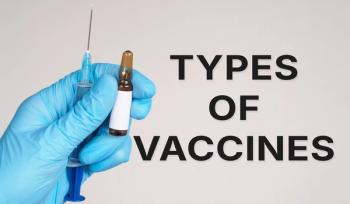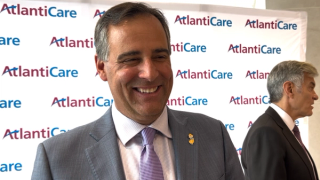
Technology
Latest News

Latest Videos

More News

Stronger partnerships between primary care and oncology improve patient outcomes by ensuring coordinated care and addressing financial and systemic barriers, says Mark Fendrick, MD.

Reducing data silos and boosting transparency in oncology requires payer-provider trust and co-governance, according to Vishnukamal Golla, MD, MPH.

Vivek Subbiah, MD, considers artificial intelligence (AI) and comprehensive somatic and germline testing essential for guiding precision oncology and improving patient care.

Experian Health’s 2025 State of Claims survey shows rising denial rates, data errors, and low artificial intelligence adoption despite providers’ belief in its potential.

Digital health technologies enhance respiratory care through decentralized clinical trials and home monitoring, expanding access and improving patient engagement.

Davey Daniel, MD, shares strategies to prevent bias in artificial intelligence (AI) and outlining future opportunities for its adoption in precision oncology.

Christopher Carlin, MBChB, PhD, explores the potential of AI-driven insights to enhance COPD care and identify candidates for biologic therapy.

A recent study outlines how artificial intelligence advancements are transforming research and therapeutic strategies for idiopathic pulmonary fibrosis.

Artificial intelligence (AI) holds the potential to democratize precision oncology, but it must be implemented thoughtfully.

Broader integration of artificial intelligence (AI) in precision oncology depends on overcoming barriers such as trust and transparency, according to Davey Daniel, MD.

As therapeutic advances enable patients with cancer to live longer, greater attention is needed to support the goal of survivorship, starting at diagnosis.

The program works by embedding Medbridge’s Pathways platform into Marathon’s MoveWell MSK program and advanced primary care model.

Researchers found that even smaller open artificial intelligence (AI) models outperformed clinicians, supporting automation of International Classification of Disease (ICD) coding.

Explore cutting-edge discussions on patient-centered oncology, value-based care, AI innovations, and survivorship strategies Thursday and Friday at PCOC 2025 in Nashville.

Laxmi Patel explains how Medicaid reforms could increase uncompensated care and the burden on hospitals, and how technology can help automate workflows.

The adoption of technologies like telehealth and health information exchange increased over time, but hospitals in the most disadvantaged areas were behind.

Remote patient monitoring enhances cancer care by improving outcomes and reducing emergency visits, despite challenges in reimbursement and technology access.

DeepSeek-R1 was able to improve diagnosis management in these subspecialties while also lowering operation costs.

Maintaining eye health through regulating use of technology and attending annual checkups are an important aspect of children’s health as the school year approaches.

In this conversation with Reuben Daniel, associate vice president of artificial intelligence at UPMC Health Plan, we dive into how UPMC Health Plan builds trust with providers and members, discuss challenges of scaling AI effectively, and hear about concrete examples of AI's positive impact.

There are many types of vaccine technologies, and this article will explore a diverse set that includes attenuated live pathogens and toxoid vaccines, highlighting their mechanisms, benefits, and limitations.

A clinical trial assessing a remote weight loss intervention in women with breast cancer saw a reduction in body weight.


In this study, total flares were investigated for their propensity to predict atopic dermatitis disease severity among adult patients.

A new TIAA Institute report says solving workforce shortages with smarter hiring, training, and artificial intelligence could ease the rising demand for care from an aging population.


















